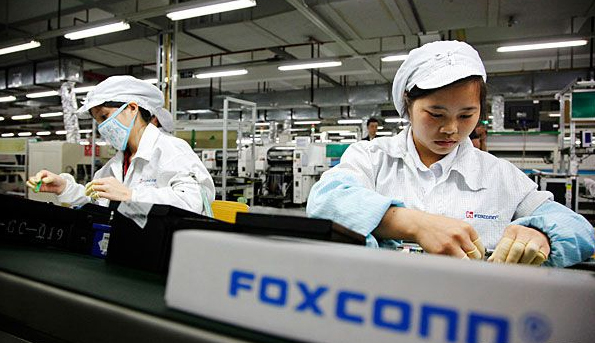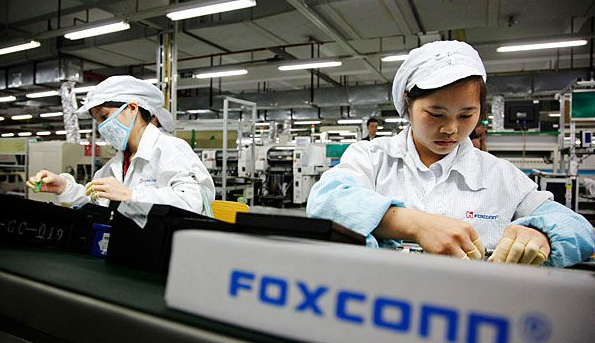 进行“道德供应链管理”可行吗?29日,针对苹果在华工厂的首次独立审计报告发布,这表明电子消费品巨头苹果公司将成为结束跨国公司过度用工的试验品。此次审计被认为是中国制造业史上最详细的审计之一,苹果公司的行为规范中至少有50项“严重违背”了中国法律,其中包括用工超时和其他健康、安全方面的违规。
进行“道德供应链管理”可行吗?29日,针对苹果在华工厂的首次独立审计报告发布,这表明电子消费品巨头苹果公司将成为结束跨国公司过度用工的试验品。此次审计被认为是中国制造业史上最详细的审计之一,苹果公司的行为规范中至少有50项“严重违背”了中国法律,其中包括用工超时和其他健康、安全方面的违规。
苹果公司要求非政府组织——美国公平劳动协会(FLA)负责执行这次审计工作,以此来回应铺天盖地的苹果过度用工的负面舆论,尤其是苹果在中国的代理工厂鸿海,也就是富士康——这也是全球最大的代理制造商。FLA采访了富士康在深圳和成都的工厂,对其3个工厂的3万5000名负责组装iPhone、iPad等苹果公司产品的工人进行了调查。
三个工厂的情况相同。在过去的12月中,工人每周的工作时间超过了苹果公司行为规范的规定限度60小时,很多工人每月的加班时长超过立中国法律规定的限度36小时。接受调查的工人中几乎有一半称他们曾出现过意外,或亲眼见过发生意外。另外,并未发现有未成年工人(这与苹果公司最近的内部审计不符),FLA还称工人的工作条件并不比中国的其他工厂差。
苹果首席执行官蒂姆•库克(Tim Cook)于28日参观了公司在河南省新建的富士康郑州科技园,并对iPhone的生产线进行了勘察。苹果公司做得还算好,它对报告欣然接受,而且同意了报告中推荐的规范。“我们认为给工人授权,帮他们清楚地认识到自己享有的权利非常重要,”它在一次发布会上说。苹果公司声称公司在这个问题上已经默默努力了很多年,虽然结果还比较复杂。富士康告诉FLA,公司会在2013年7月之前把工作时间减少到法律规定的限度之内,那将只是一个开始。FLA说这将迫使富士康不得不再扩招好几万工人。
只要苹果现存的商业模式不变,严格遵守一切规范就不那么容易。其他大品牌的例子也表明,当市场需求突然增多时,通常是发布新产品后,工厂往往面临生产压力,这时候就容易出现过度用工的现象——尤其是加班现象会非常严重。从FLA总裁Auret van Heerden的评论中看出苹果应该也是这种情况。他在发布审计报告时说,遇到新产品上市和假期来临的高峰时期,工作时间就立马多到无以复加的地步。
最大的问题是:苹果能否想到一个改变其原有产品周期的方法,且这个方法能让苹果在下一次发布新iPhone或iPad时不至于让代理工厂过于紧张。
 IS IT possible to run an “ethical supply chain”? After the publication on March 29th of the first independent audit of the factories Apple uses in China, the iconic consumer electronics giant has definitely become the test case for whether multinationals can put an end to labour abuses. According to the long awaited report, which is considered one of the most detailed audits of a Chinese manufacturer to date, there were at least 50 “serious and pressing non-compliances” with Chinese law and Apple's code of conduct, including excessive overtime and other health and safety violations.
IS IT possible to run an “ethical supply chain”? After the publication on March 29th of the first independent audit of the factories Apple uses in China, the iconic consumer electronics giant has definitely become the test case for whether multinationals can put an end to labour abuses. According to the long awaited report, which is considered one of the most detailed audits of a Chinese manufacturer to date, there were at least 50 “serious and pressing non-compliances” with Chinese law and Apple's code of conduct, including excessive overtime and other health and safety violations.
Apple had asked the Fair Labour Association (FLA), a non-government organisation, to conduct the audit following a burst of bad publicity over reports of workers being abused, particularly at factories in China operated by Hon Hai, known as Foxconn, the world’s biggest contract manufacturer. The FLA visited Foxconn factories in Shenzhen and Chengdu, and surveyed some 35,000 workers at three facilities where Apple products, including iPhones and iPads, are assembled.
At all three, during the past 12 months workers on average exceeded the limit of 60 hours of work a week stipulated in Apple’s code of conduct. Many also worked more than 36 hours overtime a month, China's legal limit. Nearly half of workers surveyed said that they had had an accident or seen one. On the other hand, no workers appear to have been under age (in contrast with a recent internal audit by Apple), and the FLA says that conditions were "no worse than any other factory in China".
Apple and its chief executive Tim Cook (pictured, talking to employees during his visit of the iPhone production line at the newly built Foxconn Zhengzhou Technology Park, Henan province, on March 28), to their credit, welcomed the report and agreed to support its recommendations. "We think empowering workers and helping them understand their rights is essential," the said in a statement. And it claimed that is has been working quietly on these issues for years, albeit clearly with only mixed results. Foxconn has told the FLA that it will reduce working hours to legal limits by July 2013, which is a start. The FLA says this will require Foxconn to recruit tens of thousands of extra workers.
Compliance will not be easy as long as Apple's existing business model remains unchanged. The evidence from other big consumer brands suggest that most abuses of workers—particularly when it comes to overtime—occur when a factory is under pressure to meet a sudden surge in demand, often around product launches. The same appears to be true of Apple, judging by comments made by Auret van Heerden, FLA's chief executive. Working hours, he said at the presentation of the audit, were being "blown out" during peak periods like device launches and the holidays.
The big question is: Can Apple find a way to reengineer its product cycle in such a way that it does not put the factories it uses under excessive strain next time it launches a new iPhone or iPad?
 进行“道德供应链管理”可行吗?29日,针对苹果在华工厂的首次独立审计报告发布,这表明电子消费品巨头苹果公司将成为结束跨国公司过度用工的试验品。此次审计被认为是中国制造业史上最详细的审计之一,苹果公司的行为规范中至少有50项“严重违背”了中国法律,其中包括用工超时和其他健康、安全方面的违规。
进行“道德供应链管理”可行吗?29日,针对苹果在华工厂的首次独立审计报告发布,这表明电子消费品巨头苹果公司将成为结束跨国公司过度用工的试验品。此次审计被认为是中国制造业史上最详细的审计之一,苹果公司的行为规范中至少有50项“严重违背”了中国法律,其中包括用工超时和其他健康、安全方面的违规。

 IS IT possible to run an “ethical supply chain”? After the publication on March 29th of the first independent audit of the factories Apple uses in China, the iconic consumer electronics giant has definitely become the test case for whether multinationals can put an end to labour abuses. According to the long awaited report, which is considered one of the most detailed audits of a Chinese manufacturer to date, there were at least 50 “serious and pressing non-compliances” with Chinese law and Apple's code of conduct, including excessive overtime and other health and safety violations.
IS IT possible to run an “ethical supply chain”? After the publication on March 29th of the first independent audit of the factories Apple uses in China, the iconic consumer electronics giant has definitely become the test case for whether multinationals can put an end to labour abuses. According to the long awaited report, which is considered one of the most detailed audits of a Chinese manufacturer to date, there were at least 50 “serious and pressing non-compliances” with Chinese law and Apple's code of conduct, including excessive overtime and other health and safety violations.